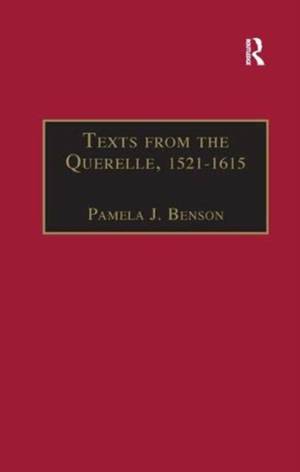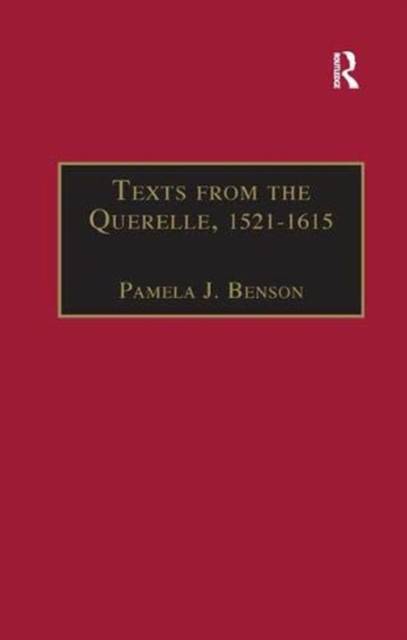
Je cadeautjes zeker op tijd in huis hebben voor de feestdagen? Kom langs in onze winkels en vind het perfecte geschenk!
- Afhalen na 1 uur in een winkel met voorraad
- Gratis thuislevering in België vanaf € 30
- Ruim aanbod met 7 miljoen producten
Je cadeautjes zeker op tijd in huis hebben voor de feestdagen? Kom langs in onze winkels en vind het perfecte geschenk!
- Afhalen na 1 uur in een winkel met voorraad
- Gratis thuislevering in België vanaf € 30
- Ruim aanbod met 7 miljoen producten
Zoeken
Texts from the Querelle, 1521-1615
Essential Works for the Study of Early Modern Women: Series III, Part Two, Volume 1
Pamela J Benson
€ 99,45
+ 198 punten
Omschrijving
Misogyny and its opposite, philogyny, have been perennial topics in Western literature from its earliest days to the present day, but only at certain historic periods have pro-woman authors challenged fundamental negative assumptions about women by engaging in formal debate with misogynists and juxtaposing these two attitudes toward women in pairs or series of texts devoted exclusively to discussing womankind. This dialectic of attack on and defence of the female sex, known as the querelle des femmes (debate about women), was especially popular among authors and readers during the sixteenth and earlier seventeenth centuries in England. At least 36 texts exclusively devoted to attacking and/or defending women were published in the hundred years between 1540 and 1640. The works included in these two volumes exemplify the content and the methods of debate in England during those two centuries. Volume one includes texts from 1521 through to 1615.
Specificaties
Betrokkenen
- Auteur(s):
- Uitgeverij:
Inhoud
- Aantal bladzijden:
- 536
- Taal:
- Engels
- Reeks:
Eigenschappen
- Productcode (EAN):
- 9781138378728
- Verschijningsdatum:
- 12/06/2019
- Uitvoering:
- Paperback
- Formaat:
- Trade paperback (VS)
- Afmetingen:
- 140 mm x 210 mm
- Gewicht:
- 594 g

Alleen bij Standaard Boekhandel
+ 198 punten op je klantenkaart van Standaard Boekhandel
Beoordelingen
We publiceren alleen reviews die voldoen aan de voorwaarden voor reviews. Bekijk onze voorwaarden voor reviews.









